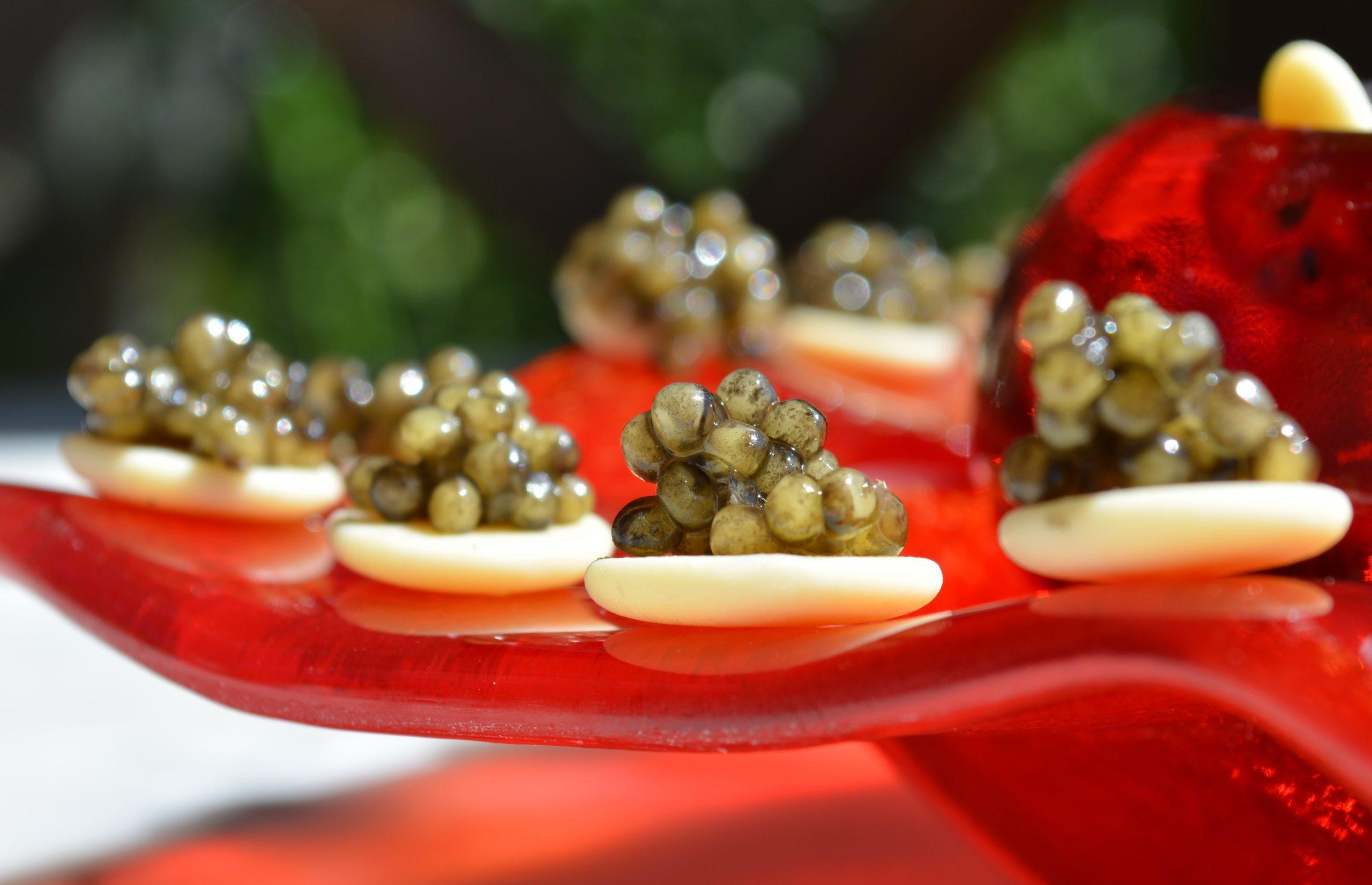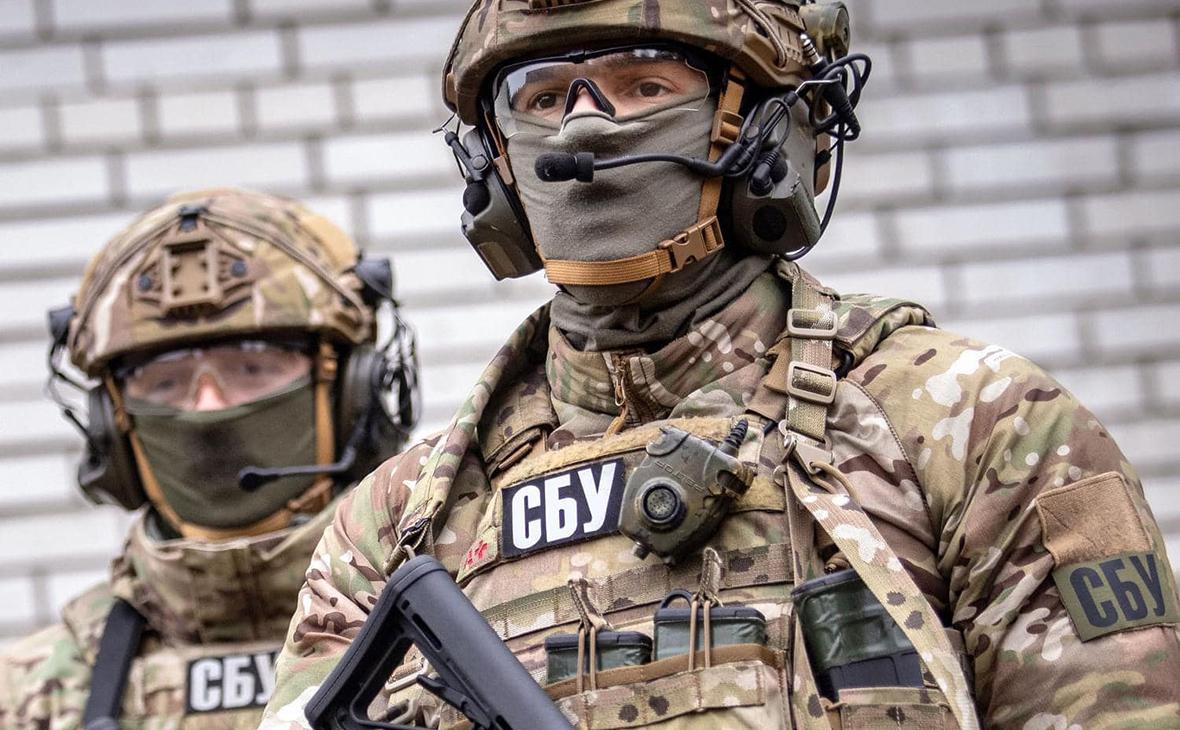Chefs around the world are now being introduced to OOK caviar as well as the country and naturally its region of production.
Quality ingredients are the key factors to any chefs success. So, it is with great pleasure to be able to support a Ukrainian caviar company from Odessa and assist with the brand, its growth and expansion on the International platform.
Alan Coxon

Odessa Sturgeon Breeding Complex LLC is a pedigree reproducer of the purebred lines of the disappearing Wild-type species of Sturgeon such as Siberian (Acipenser Baerii), Russian (Acipenser Gueldenstaedtii), Sterlet (Acipense Ruthenus), Beluga (Huso Huso), Sevruga (Acipenser Stellatus) and their hybrids as well as Carps, Herbivores and Predators which reside in the north end of the Black Sea and the Danube Delta.
The earliest credible evidence of sturgeon fishing and eating it as a rare delicacy appears in the texts of Greek historians such as Herodotus, Polybius and Strabo. Sturgeon and sterlet from the Black Sea were salted and exported to Greece. It’s been a long time and much has changed but sturgeon meat and caviar are still rare and expensive food items. This amazing delicacy has been on the tables of aristocrats, nobles and kings since the 10th century.
The innovative technology of making caviar gives the product rich and unique taste which will satisfy the most demanding customers and true gourmets. Natural environment and fed all natural foods ensure for a stunning flavor and quality of caviar.
Caviar is a luxury premium product and it is therefore vital that the flavour profiles exceed expectations. When the glistening caviar pearls are placed in the mouth, the salt levels (Molassol) should be balanced, whilst the gentle bursting of liquids release a creaminess and mouth feel, followed by a rich nuttiness on the palette.
Alan Coxon

Some information about utensils to serve caviar properly:
Caviar contains a high concentration of proteins with high sulfur content. If one eats or serves caviar with silver utensils that was common in 18th and 19th centuries, caviar "reacts" with the silver, oxidises it and as a result the silver turns darker in colour and caviar absorbs metal flavours.
An alternative non-metal material had to be found to enjoy caviar and that happened to be mother of pearl, ivory, bone, plastic and wood. Mother of pearl comes from the sea as well as caviar, they match perfectly. Ivory and bone utensils are difficult to find and usually not recommended to purchase due to illegal poaching.

The Beluga (Huso Huso) is a species of the sturgeon family that appeared more than 200 million years ago. This fish can be found in the north-west of Black Sea and in the Sea of Azov.
Beluga is the biggest sturgeon and is considered to be the one of the largest freshwater fish around the globe. There is a known case of catching Beluga, which was more than 100 years old, weighed around 1.5 tons and was 5 meters long. 300 kg of eggs were got only from one fish!
Today, however, such a specimen almost does not occur in wild. The maximum age of Beluga that was registered is 118 years, nevertheless, it is supposed that some individuals can be even older. Beluga is mentioned in a list of conserved wild animals of The Bonn Convention and Bern Convention, European Red List of Globally Threatened Animals and Plants and The Red Data Book of Ukraine.
Russian sturgeon (Acipenser gueldenstaedtii Brandt) is quite a big fish. Its length can reach up to 2.2-2.4 m, weight up to 65-115 kg. Russian sturgeon lived up to 48 years, but nowadays it is hard to find one older than 38 in wild.
Its habitat includes the Azov-Black Sea basin and the Caspian Sea basin. Adult sturgeon does not have any threats in the natural environment.
In the Black Sea basin sturgeons spawn in the Danube River, the Dnieper and Rion River, and sometimes in Southern Buh and the Dniester. Russian sturgeon is listed in The Red Data Book of Ukraine.
Siberian sturgeon (Acipenser ruthenus Brandt) is a freshwater sturgeon that grows up to 3 m and 200-210 kg. The usual weight is not more than 65 kg, however. The maximum age of Siberian sturgeon that was registered is approximately 60 years.
There are 3 subspecies of Siberian sturgeon: Ob sturgeon, Lena sturgeon and Baikal sturgeon.
Sterlet (Acipenser ruthenus Linnaeus) is relatively small-sized sturgeon species with a maximum length of up to 120 cm and 8 kg weight. The usual length is not more than 40-60 cm and 0.5-4 kg weight. The maximum age of Sterlet that was registered is approximately 20 years.
Sterlet is a freshwater fish that reside in the rivers that flow into the Caspian, Black, Azov, Baltic, White, Barents and Kara Seas. Sterlet is a very important sturgeon species. One of the biological features of Sterlet is an easy cross-breeding with other sturgeon species. Due to this possibility you can find in aquaculture such hybrids as Bester (Beluga X Sterlet), Sterbel (Sterlet X Beluga), and others. Sterlet is listed in The Red Data Book of Ukraine.
Selective breeding allows Odessa sturgeon breeding complex LLC to rear Albino Sterlet. Albino sturgeons spawn very seldom and that is why there are buyer waiting lists that can stretch up to a few years.
The freshness of flavour brings thoughts directly to the sturgeon that produced it, the clarity of water and healthy environment, in which it lived. Such quality ingredients are the key factors to any chefs success, so, it is with great pleasure to be able to support a Ukrainian caviar company from Odessa and assist with the introduction of its products to my colleagues on the Global stage.
Alan Coxon

You can find more details about Odessa Sturgeon Breeding complex on www.odessasturgeon.com




















